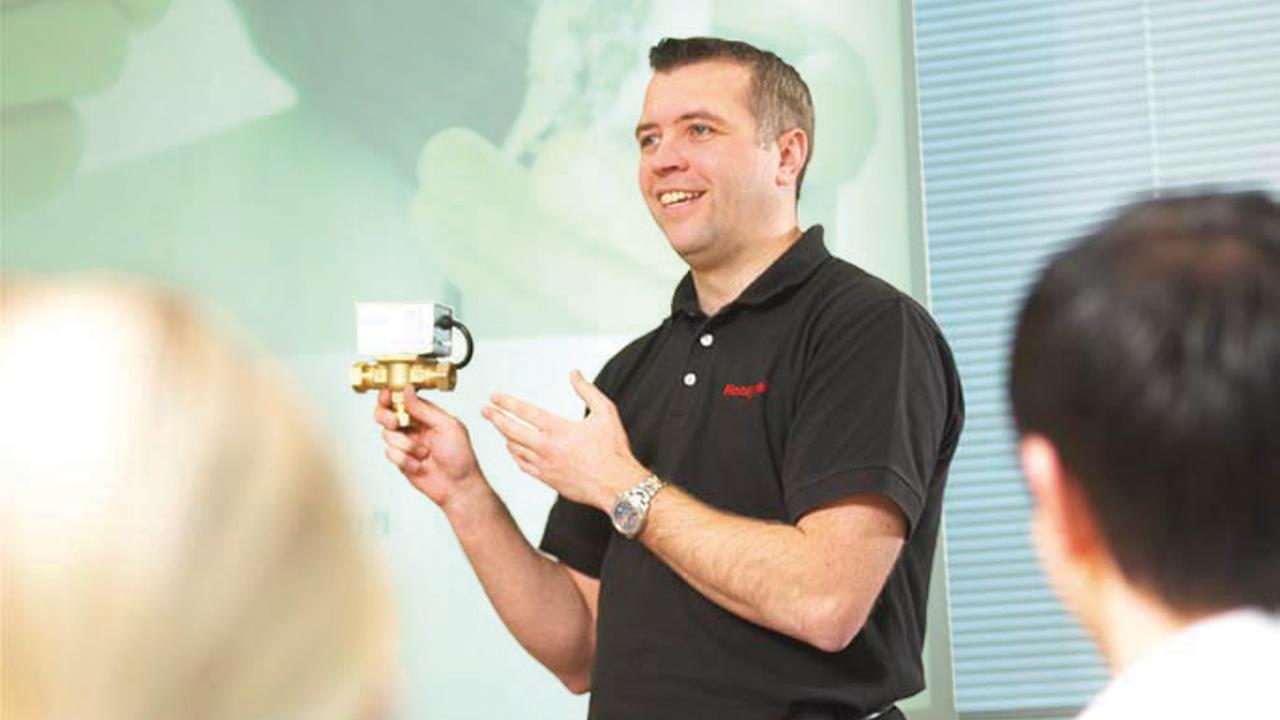


With all trades experiencing a skills gap and many businesses struggling to find qualified staff to meet demand, the question remains – what is the answer to the skills shortage? Vaughn Wiles, Connected Controls Specialist at Resideo, discusses.
It’s no secret that the plumbing and heating industry is facing a skills shortage, and it is our responsibility to help provide training and guidance to the heating engineers of the future.
According to the Department for Education’s 2017 Employer skills survey, there are not enough skilled professionals to meet demand in the UK. In fact, skilled trade roles – which include plumbers, electricians, and construction workers – continue to have the highest density of skill shortage vacancies, with around two in every five skilled trade vacancies proving hard to fill for skills-related reasons. This occupation has had the highest density of skill shortage vacancies in all previous Employer skills surveys.
It’s therefore vital for the trade community to work together to not only attract young people into the industry, but to also provide the means for existing tradespeople to hone their skills and provide adequate training to ensure there are no gaps in the workforce.
In fact, in 2015, Resideo held a roundtable discussion on the future of smart heating controls, where attendees debated various issues including the skillset of the engineer of the future.
Richard Burrows, Director of Overall Maintenance Limited and The EVOHOME Shop, said at the time: “It’s not easy for an installer today because a smart heating control is not something that only controls the boiler, it’s a device that matches up to a network.
“It’s Internet connected and it’s also a wireless control. With the knowledge gap between heating engineers and electricians, not everyone will know how to install RF devices correctly.
“A lot of installers who contact us simply haven’t got the knowledge or qualifications to install a smart control and this needs to be addressed by the industry as it has a knock on affect across all areas. The fact is the role of the installer is going to change dramatically over the next 12 months, training and upskilling will be required across the industry if we are going to close the market gap.”
Now, four years down the line, it’s clear the lack of skills still rings true. Addressing the problem with a series of practical, hands-on opportunities is an ideal option, as it allows us to teach highly specific skills, thus making heating engineers invaluable to the growth of the industry as a whole. New technologies and products are coming out all the time, so offering training days allows engineers to really stay ahead of the game.
Most manufacturers offer free training as well as paid-for courses which are designed to arm installers with the right tools and training for every industry challenge. For example, Resideo has an e-learning platform for installers to equip themselves with the necessary information to install, advise on, and upsell Resideo’s line of Honeywell Home products effectively.
Our training courses are designed to cover an increasingly wide variety of topics – from sharpening up on the basics, through to more specialist subjects designed for experienced and established installers looking to widen their remit.
The right training course can be instrumental in helping a heating engineer to sell more services or products to their customers. Over time, this means the financial benefits can easily outweigh that relatively small investment of a day or two out of work.
The traditional role of the installer has evolved to welcome a new generation of smart, savvy energy advisers and it’s only those who upskill who will capitalise on the changes. Good quality training is out there for the talking – we recommend that installers embrace it now and take the time today to invest in it, to stake their place in the market.
If you'd like to keep up-to-date with the latest developments in the heating and plumbing industry, why not subscribe to our weekly newsletters? Just click the button below and you can ensure all the latest industry news and new product information lands in your inbox every week.